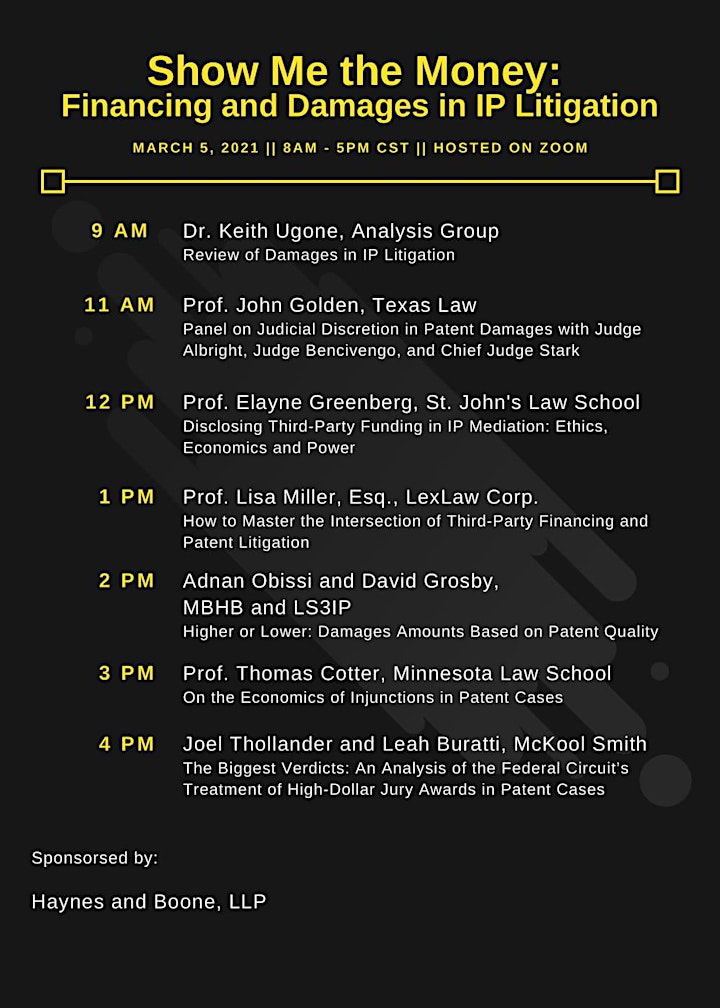This was reported last week by
Henrik Holzapfel and Christian Dölling in the National Law Review and by Florian Mueller on FOSS Patents.
The set-up for the referral is that German patent litigation is bifurcated,
meaning that the district courts hear infringement trials, but validity
challenges are litigated separately (either as opposition proceedings before
the EPO or the Deutsches Patent- und Markenamt, or in nullity actions
before the Bundespatentgericht). Validity challenges take longer
than infringement trials, which gives rise to the "injunction
gap"--meaning that a court may enter an injunction against an accused
infringer in an infringement action, only to have it determined several months
later that the patent in suit was invalid. (For an interesting take on
this issue, see this recent post on IPKat.) Bifurcation also affects
preliminary injunction practice, in that German courts generally do not grant
preliminary injunctions in patent cases unless the patent in suit has survived
a validity challenge in of these other forums (though there are exceptions, as
Holzapfel and Dölling note, citing the Düsseldorf
Oberlandesgericht’s 2008 decision Olanzapin, for discussion of which
see my
book pp. 243-44 and this
2017 blog post). Anyway, the Munich I District Court has now referred
the following matter to the CJEU, as announced in a press release:
Ist
es mit Artikel 9 Abs. 1 der Richtlinie 2004/48/EG vereinbar, dass im Verfahren
des einstweiligen Rechtsschutzes letztinstanzlich zuständige Oberlandesgerichte
den Erlass einstweiliger Maßnahmen wegen der Verletzung von Patenten
grundsätzlich verweigern, wenn das Streitpatent kein erstinstanzliches
Einspruchs- oder Nichtigkeitsverfahren überstanden hat?
Holzapfel and Dölling translate this
as "Is it in line with Article 9(1) of Directive 2004/48/EC for the Higher
Regional Courts having jurisdiction at final instance in proceedings for
interim relief to refuse in principle to grant interim measures for
infringement of patents if the patent in dispute has not survived opposition or
nullity proceedings at first instance?" Mueller translates it as
""Is it a correct application of Art. 9 para. 1 of Directive
2004/48/EC that higher regional courts, whose decisions cannot be appealed
further in preliminary injunction proceedings, generally deny injunctive relief
over patent infringement if the patent-in-suit has not survived an opposition
or nullity proceeding in the first instance?" By way of comparison,
here is the text of article 9(1) of the IP Enforcement Directive:
1.
Member States shall ensure that the judicial authorities may, at the request of
the applicant:
(a)
issue against the alleged infringer an interlocutory injunction intended to
prevent any imminent infringement of an intellectual property right, or to
forbid, on a provisional basis and subject, where appropriate, to a recurring
penalty payment where provided for by national law, the continuation of the alleged
infringements of that right, or to make such continuation subject to the
lodging of guarantees intended to ensure the compensation of the rightholder;
an interlocutory injunction may also be issued, under the same conditions,
against an intermediary whose services are being used by a third party to
infringe an intellectual property right; injunctions against intermediaries
whose services are used by a third party to infringe a copyright or a related
right are covered by Directive 2001/29/EC;
(b)
order the seizure or delivery up of the goods suspected of infringing an
intellectual property right so as to prevent their entry into or movement
within the channels of commerce.
Anyway, the press release indicates
that the referring court doesn't think that German practice is in conformity
with article 9(1), because a recently-granted patent is effectively denied the
possibility of preliminary injunction relief; moreover, patent owners don't
have the ability to control whether their patents will be subject to a validity
challenge. In addition, the release notes that patents, unlike some other forms
of IP, are issued only after there has been an examination for compliance with
the requirements of patentability. True, but as Mueller points
out, a substantial number of these patents are invalid. Further, even in non-bifurcated systems,
preliminary injunctions tend to be rare in patent infringement actions, precisely
because it is difficult for a court to determine, at some an early stage,
that the patentee is likely to succeed on the merits in the face of (the typically
inevitable) validity challenge. (Under
Federal Circuit case law, for example, a court should deny a preliminary injunction
if there is a “substantial question” of validity. See Titan Tire Corp. v. Case New Holland,
Inc., 566 F.3d 1372 (Fed. Cir. 2009).)
Although
I am not well-positioned to guess what the CJEU will do, I would hope that at a
minimum it determines that the patentee must demonstrate a likelihood of
validity, beyond the mere fact that the patent has been granted, before a court
may issue a preliminary injunction. Anything
short of that poses a substantial risk to competition and innovation, in my
view, given the large number of patents that are, in fact, invalid. Alternatively, I don’t know that it would be
wrong for the court to hold that you simply can’t get a preliminary injunction
in a bifurcated system absent proof that the patent has survived a validity
challenged or other exceptional circumstances:
after all, having a bifurcated patent system is a choice, not an
entitlement—isn’t it?
